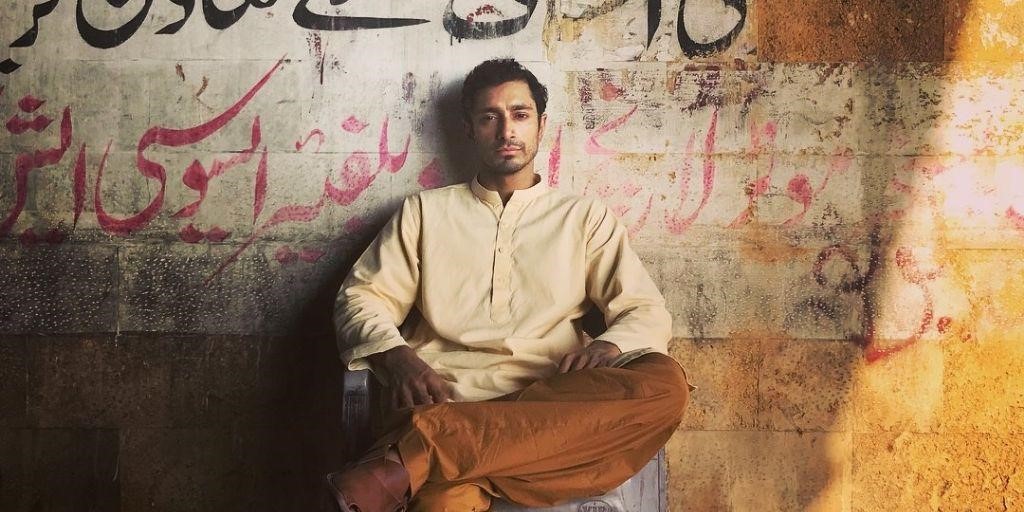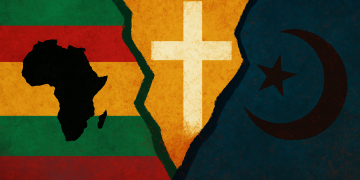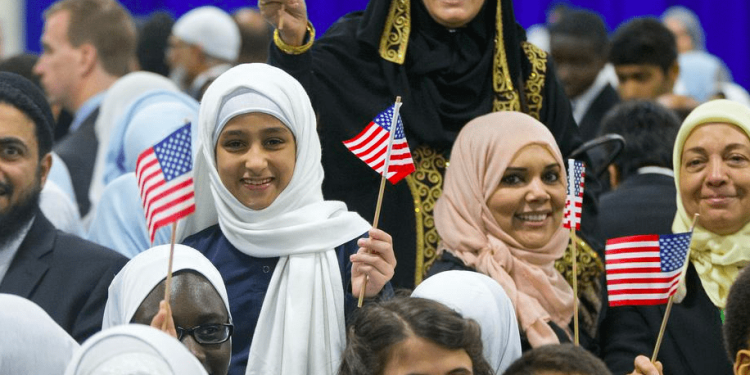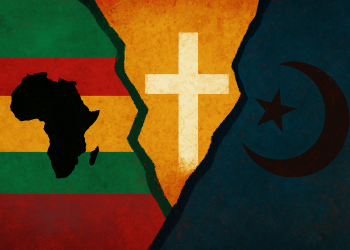Films have the potential to play an active role in determining which subject will be chosen and which discourse will be highlighted, or how observations will be framed and associations be constructed. Hollywood, as one of the most important standard-bearers of Western cinema, has the ability to have a greater impact on the formation of popular culture through symbolic images than thousands of words. An image on the screen plays an essential role in the construction of identity, images and the formation of stereotypes. Although the problematic portrayal of Muslim identity in Hollywood cinema seems to be a result of the global terrorism of September 11 theoretically, we cannot ignore the fact that it stems from the historical discourse of the West. Even before 9/11, the representation of the Muslim image in American society through the orientalist framework of “us” and “them” was a result of the civilising mission of the West. The important point here is as follows: After the events of September 11, Muslims have been represented more as the “other,” primarily through the lenses of security threats and political identities.
Has the Image of Muslims in Hollywood Transformed?
For centuries, discourses on the East have been narrated by the West through different portrayals. This centuries-long process of marginalisation manifests itself today as Americancentric and Eurocentric; thus, a specific culture continues to assert its own unique world all over the world. Hence, all kinds of actions and violence against Islam have been legitimised, while Islam and any notion regarding Islamic geography have been demonised. The perception of “Muslim equals fear” has been carried to another dimension with the attack on the Twin Towers in the United States of America on September 11, 2001; and the perception of “Muslim equals terrorist” has been legitimised by inscribing it into the public memory in different ways. The problem here is the problem of marginalising a religion by associating the negative thoughts and actions of individuals or groups, who share the same religious beliefs, with all believers of that religion. After the September 11 attacks, then-US President George W. Bush popularised the concept of Islamic terrorism in American society by using media outlets effectively. Especially after 2001, the Hollywood film industry played an active role in the circulation of “Islamist terror” in society. The effort to establish a compulsory relationship between Islam and terrorism and the function of establishing a close connection with the religious identity of a terrorist has been carried out only on Islam, while other religious identities have not even been mentioned. Therefore, it is necessary to discuss the existence of a deliberate ideology in shaping the perception in question. This problematic perspective continues to gain legitimacy through “stereotypes”. In this context, I would like to point out these stereotypes:
Stereotypes involve a categorisation process and are usually characterised by a negative, imprecise and superficial assessment of individuals, groups, nations or ideologies. Moreover, stereotypes are deeply embedded in people’s minds and are self-perpetuating, which makes these stereotypes challenging to eliminate. Films can also significantly shape the perception of the viewer through their presence and ability to attract attention. The marginalisation of the concept of “Muslim” in Western societies has endured before and after 9/11. Stereotypes of Muslims as a threat to the social fabric have been created through perilous depictions. While representing Muslims as terrorists after September 11, Hollywood films such as Babel (2006), The Kingdom (2007) and Rendition (2007) have also portrayed them from a different perspective. Moving away from the concept of constructing a single image of evil as in the past, Hollywood has started to produce films that try to overcome this unbalanced attitude when it comes to Muslims. It is possible to say that this is progress because the constant reflection of the biased image in cinema damages the understanding of the represented society, its people, and culture to this day. The following conclusion can be drawn from this: With the September 11 attacks, the image of Muslims in the Western world has deteriorated further, but as the nature of the film world has changed in recent years, there has also been a change in the way films are shown, and films that portray diverse facets of Muslim life have been produced. Nevertheless, the number of such films remains quite limited.
The effort to establish a compulsory relationship between Islam and terrorism and the function of establishing a close connection with the religious identity of a terrorist has been carried out only on Islam, while other religious identities have not even been mentioned.
Do “Pluralism” and “Inclusivity” Justify Cinema?
Islam is contextualised in terms of the clash of civilisations, especially by the Western media, and the religious and cultural differences are presented as real-life scenes by fictionalising them in a biased way. In 2021, the study titled Missing & Maligned: The Reality of Muslims in Popular Global Movies examined 200 films between 2017 and 2019 and focused on the representation of Muslim characters in these films. We can see it as a recent study with important findings in this context. The study included 100 films from the USA, 63 from the UK, 32 from Australia and 5 from New Zealand. When we look at the percentage of Muslim characters by country, Australia has the highest percentage of Muslim characters. Muslim characters are being erased from popular films. Of the 200 popular films in the study, 80% do not have a single narrative about Muslim characters. The erasure of Muslim characters from these popular narratives serves to eliminate any understanding of the role of this community off-screen and in public life. Muslim women are also absent in the most popular films. Only 15 out of 200 popular films feature Muslim women. From this point of view, it is possible to say that the portrayal of Muslim women fails to reflect their roles and contributions in real life. Again, the fact that the characters are from the Middle East and North Africa provides a narrow view of the racially and ethnically diverse reality of Islam. The audience associates Muslim identity with a specific racial and ethnic group. Lastly, as the analysis of these 200 films reveals, the fact that Muslim characters face stereotypical prejudices in storytelling. According to the study, which emphasises how rarely the Muslim character appears on the screen, especially without any dialogue, film content producers still have basic prejudices about Muslim societies. Therefore, it is possible to say that the lack of imagination of the character designers limits both the overall number of Muslim characters on screen and the roles they fill. In reality, Muslims constitute a vibrant community with global diversity. This narrow view of Muslims is a perspective that needs to change and grow, not only in the context of the silver screen but for individuals all over the world.

Riz Ahmed is the first Muslim actor to win an Oscar in the Best Actor category.
The search for pluralism is a concept that expresses the need for cultural integration and cohesion and points to a necessity that exists for both sides. What does fostering a pluralistic and inclusive understanding of the “other” in the West mean? In this context, if we go through the Muslim identity, it is possible to talk about a context in which Western culture is insensitive to the concepts of this culture and, over time, it has strengthened a vision of Islam that is synonymous with “Islamist extremism”. This period we are living in is culturally, spiritually and intellectually poor. The concept of pluralism is a bit provocative in this regard because this project, which is a modern approach, is designed to deprive Muslims or other identities of their heritage. Other identities, attributed to a time in history that clearly does not exist, are treated and represented as if they were not a part of the conceptual universe of humanity. Hence, it is problematic because, although the modern idea of identity emphasises progress, it attempts to create a new identity by decontextualising identity. There is a monolithic, undifferentiated, intellectual protocol that exists all over the world and through which we are all condemned to look at ourselves. How can any civilisation or alternative opinion survive if it is not allowed to look at its own history, identity, art, and culture from its own perspective? From this point of view, the concepts of pluralism and inclusivity only serve this idea.
Of the 200 popular films in the study, 80% do not have a single narrative about Muslim characters. The erasure of Muslim characters from these popular narratives serves to eliminate any understanding of the role of this community off-screen and in public life.
I think pluralism requires more than what I have just described. It should be an endeavour that goes far beyond a simple procedure of not excommunicating each other; it should be an endeavour about how they can relate to each other productively and how they do so. I would like to mention three basic normative claims here: The first is to recognise the other as oneself. That is, to acknowledge empathy in a realistic and meaningful way. We should take each other seriously and care for each other, recognising that everyone is human. Secondly, we should take differences in traditions seriously, engage with and criticise them on their own terms; and present the other identity in the best possible way while acknowledging an irrational attachment to a shared cultural life. The third is the common good. This notion is expressed in many sacred texts in different traditions and is something very relevant to human development. Individuals in all societies are interested in easing their own growth; therefore, the development of one person is also very much a part of the development of another person. In this context, one’s pursuit of well-being is also someone else’s pursuit of well-being. Accordingly, working on strategies and goals will bring about a more inclusive perspective on existing diversity within the community.












































